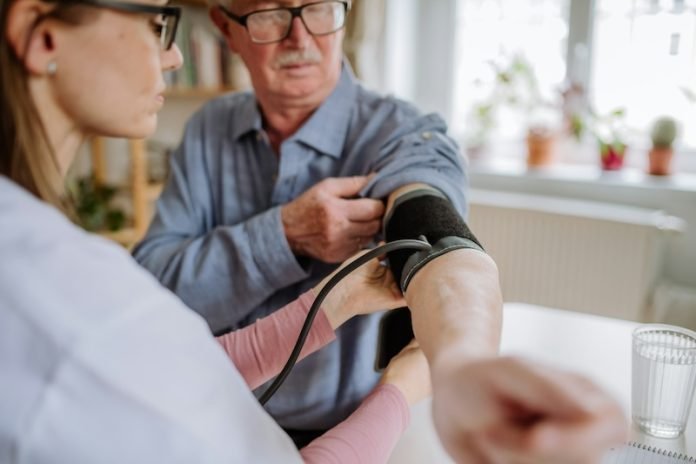
White coat hypertension might sound like a complex term, but it simply refers to a phenomenon where an individual’s blood pressure is higher when measured in a medical setting but normal at home.
This can be due to the anxiety some people feel in clinical environments, often referred to as the “white coat” effect, named after the white coats traditionally worn by medical professionals.
First identified in the 1980s, white coat hypertension is recognized as a clinically significant condition because it can lead to overtreatment or unnecessary worry.
It’s important to distinguish this from persistent hypertension, where high blood pressure is a constant issue, requiring different management strategies.
To understand whether someone has white coat hypertension, doctors usually recommend monitoring blood pressure at home, away from the stress-inducing environment of a doctor’s office.
This is done using a portable blood pressure monitor over several days or weeks. This type of monitoring helps provide a more accurate and comprehensive picture of a person’s blood pressure throughout their daily activities and in different settings.
Research suggests that people with white coat hypertension are at a slightly higher risk of developing sustained hypertension—the continuously high blood pressure that can lead to heart disease—compared to people with consistently normal blood pressure readings.
Studies have shown that over time, about one-third to one-half of patients with white coat hypertension may progress to sustained hypertension. This progression underscores the importance of monitoring and managing the condition.
In terms of treatment, the approach to managing white coat hypertension often focuses on lifestyle modifications rather than medication.
This is primarily because the elevation in blood pressure isn’t constant and doesn’t typically reach the levels observed in chronic hypertension unless it progresses.
Lifestyle changes are significant. They include maintaining a healthy weight, engaging in regular physical activity, eating a balanced diet rich in fruits, vegetables, and low-fat dairy products, and reducing sodium intake.
Reducing stress and avoiding tobacco and excessive alcohol consumption are also crucial. Techniques such as mindfulness, yoga, and meditation can be particularly effective in reducing stress-induced increases in blood pressure.
For some individuals, however, monitoring and lifestyle changes might not be enough if their white coat hypertension begins to transition into more persistent high blood pressure.
In these cases, doctors may consider medication as a precautionary measure to prevent the progression to sustained hypertension, particularly if other risk factors like diabetes or high cholesterol are present.
Regular follow-up with a healthcare provider is essential for people with white coat hypertension. This ensures that any changes in their condition are detected early and managed appropriately.
Home blood pressure monitoring is a useful tool in this ongoing assessment, giving both the patient and the doctor a clearer view of the patient’s blood pressure over time.
In conclusion, while white coat hypertension might not require the same immediate treatment strategies as persistent hypertension, it’s not a condition to be ignored.
Understanding and monitoring your blood pressure, recognizing the impact of stress on your readings, and following a healthy lifestyle are key steps in managing this unique condition.
By taking proactive measures, individuals with white coat hypertension can effectively manage their health and prevent the development of more severe cardiovascular issues.
If you care about blood pressure, please read studies that black licorice could cause dangerous high blood pressure, and this common plant nutrient could help reduce high blood pressure.
For more information about blood pressure, please see recent studies about how coffee influence your risk of high blood pressure, and results showing this olive oil could reduce blood pressure in healthy people.
Copyright © 2024 Knowridge Science Report. All rights reserved.



